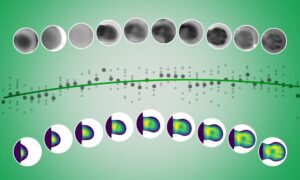
How video games inspired a new way to visualise limb development
EMBL Barcelona researchers developed a computational method that reconstructs embryonic development.
SCIENCE & TECHNOLOGY2025
science-technology
Showing results out of

EMBL Barcelona researchers developed a computational method that reconstructs embryonic development.
SCIENCE & TECHNOLOGY2025
science-technology

Toby Gibson reflects on 38 years at EMBL, the scientific tools he built along the way, and the state of science today.
PEOPLE & PERSPECTIVES2024
people-perspectives

Team Leader Sameer Velankar on why accessible training is key for AlphaFold and AI tools more generally.
PEOPLE & PERSPECTIVES2024
people-perspectivesperspectivesscience

Jacqueline shares her experience of EMBL's international PhD programme.
LAB MATTERSPEOPLE & PERSPECTIVES2024
lab-matterspeople-perspectives

As science increasingly relies on big data and AI tools, the carbon footprint of computational work is on the rise
2023
perspectives
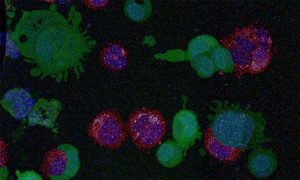
The PLAST-CELL project aims to understanding cancer progression by quantifying a cancer cell’s ability to respond to environmental stress that threatens its survival
CONNECTIONS2023
connectionstechnology-and-innovation
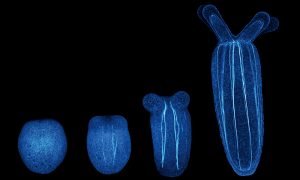
The latest research from EMBL’s Ikmi group employs interdisciplinary approaches to show how sea anemone ‘exercise’ changes their developing size and shape, uncovering an intimate relationship between behaviour and body development
SCIENCE & TECHNOLOGY2022
sciencescience-technology

Judith Zaugg, Group Leader at EMBL Heidelberg, has been awarded an ERC Consolidator Grant of €2 million funded under the European Union’s Horizon Europe research and innovation programme. Over the next five years, the grant will enable her group to study cellular interactions in the human bone…
EMBL ANNOUNCEMENTSLAB MATTERS2022
embl-announcementslab-matters

EMBL Hamburg’s Grzegorz Chojnowski from the Wilmanns Group developed software called findMySequence, which identifies proteins’ amino-acid sequences based on electron cryo-microscopy and X-ray crystallography data. It’s useful for identifying unknown proteins in samples from natural sources.
SCIENCE & TECHNOLOGY2022
sciencescience-technology

Maria Zimmermann-Kogadeeva is one of EMBL’s newest group leaders and a computational biologist whose research group applies computational modelling to better understand the metabolism of gut bacteria and their potential to have far-reaching impacts on other organs.
LAB MATTERSPEOPLE & PERSPECTIVES2021
lab-matterspeople-perspectives

The contribution of EMBL Group Leader and Senior Scientist Wolfgang Huber has been recognised by the International Society for Computational Biology
EMBL ANNOUNCEMENTSLAB MATTERS2021
embl-announcementslab-matters
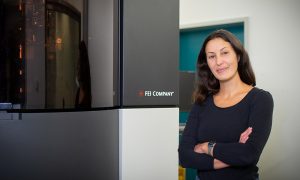
While cryo-electron tomography (cryo-ET) was first envisioned in 1968, the advances the Mahamid group are bringing to this 3D method for studying molecules directly inside cells are new, and are likely to greatly expand its use.
SCIENCE & TECHNOLOGY2020
sciencescience-technology
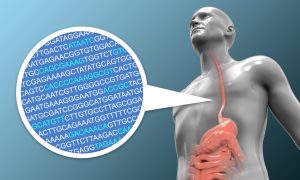
The Gerstung Group at EMBL-EBI and collaborators have developed a statistical model that analyses genomic data to predict whether a patient has a high or low risk of developing oesophageal cancer.
SCIENCE & TECHNOLOGY2020
sciencescience-technology
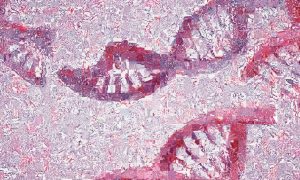
Researchers have developed an artificial intelligence algorithm that uses computer vision to analyse tissue samples from cancer patients. The algorithm can distinguish between healthy and cancerous tissues, and can also identify patterns DNA and RNA changes in tumours.
SCIENCE & TECHNOLOGY2020
sciencescience-technology
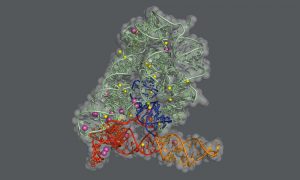
Researchers in the Marcia group at EMBL Grenoble and the De Vivo lab at the Italian Institute of Technology in Genoa have obtained some of the most detailed ever snapshots of the splicing process in systems known as group II self-splicing introns. The new insights will help scientists to develop…
SCIENCE & TECHNOLOGY2020
sciencescience-technology

Researchers in EMBL’s Zaugg group have studied the causes of pulmonary arterial hypertension (PAH), a rare disease that causes high blood pressure in the arteries of the lungs. The study, carried out in collaboration with Stanford University School of Medicine, compared lung cells of patients…
SCIENCE & TECHNOLOGY2020
sciencescience-technology
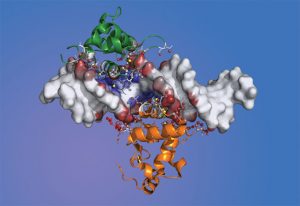
EMBL researchers have developed a method to observe interactions between transcription factors
SCIENCE & TECHNOLOGY2020
sciencescience-technology
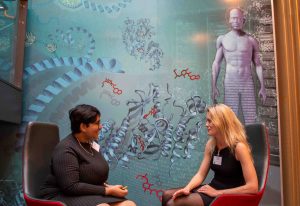
Crick and EMBL PhDs talk science over coffee
PEOPLE & PERSPECTIVES2019
people-perspectivesscience
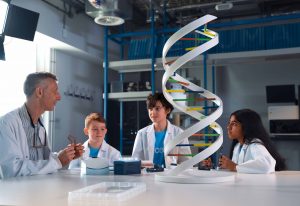
Children's rights stored in synthetic DNA
EMBL ANNOUNCEMENTS2019
embl-announcementsscience
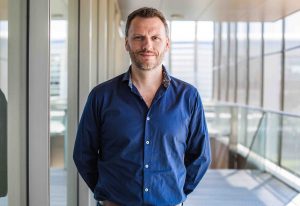
On microbiomes, public engagement and not being boring
PEOPLE & PERSPECTIVES2019
eventspeople-perspectives
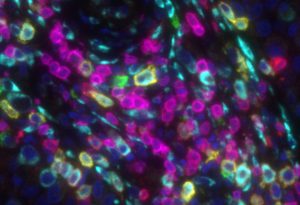
Immunotherapy: the role of B cells
SCIENCE & TECHNOLOGY2019
sciencescience-technology

Exploring the cancer genomics labyrinth
PEOPLE & PERSPECTIVES2019
people-perspectivesscience
Understanding how ageing works at a molecular level
SCIENCE & TECHNOLOGY2019
sciencescience-technology
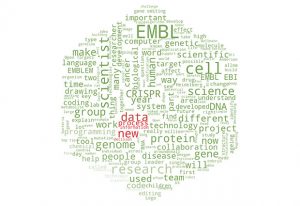
How computer processing of human language is harnessed by EMBL scientists
SCIENCE & TECHNOLOGY2019
sciencescience-technology
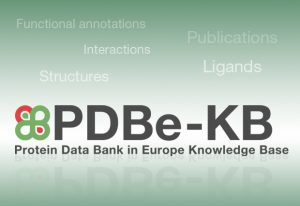
PDBe-KB - new data resource for protein structure and function launches
LAB MATTERS2019
lab-matters
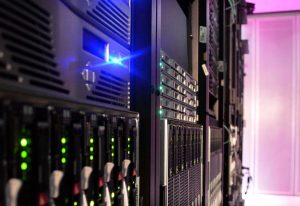
Enhancing the world's bioinformatics infrastructure
LAB MATTERS2019
lab-matters
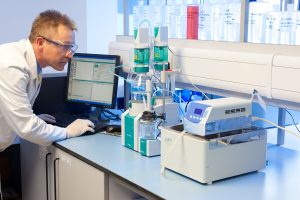
EMBL-EBI industry case study: Biocatalysts
SCIENCE & TECHNOLOGY2018
sciencescience-technology

New algorithm will enhance understanding of relationship between genotype and environmental factors
SCIENCE & TECHNOLOGY2018
sciencescience-technology

Building bridges between scientists and software developers
LAB MATTERS2018
lab-matters
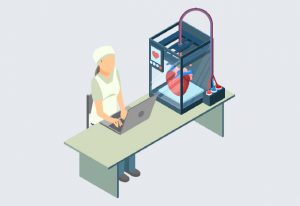
Translating 2D hospital scans into 3D prints is informing patients and aiding surgeons
SCIENCE & TECHNOLOGY2018
alumniscience-technology

Pharmaceutical company Sanofi strengthens drug targets discovery collaboration Open Targets
CONNECTIONSLAB MATTERS2018
connectionslab-matters
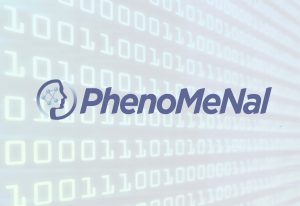
Complex metabolomics analyses in the cloud
SCIENCE & TECHNOLOGY2018
sciencescience-technology
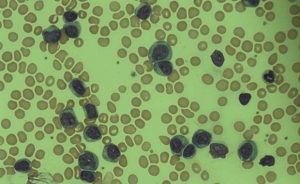
Acute myloid leukaemia risk could be detected years before diagnosis
SCIENCE & TECHNOLOGY2018
sciencescience-technology
New computational method uses multi-omics analysis for personalised medicine
SCIENCE & TECHNOLOGY2018
sciencescience-technology
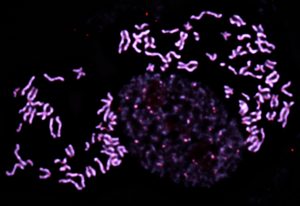
EMBL group leader Jan Korbel reflects on his scientific origins and current research
SCIENCE & TECHNOLOGY2018
sciencescience-technology

New EMBL-EBI Group Leader will make sense of bioimaging data
PEOPLE & PERSPECTIVES2018
people-perspectivesscience
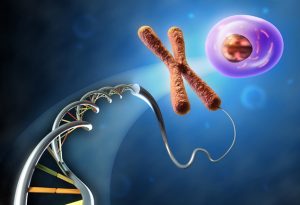
What does a cell's location tell us?
SCIENCE & TECHNOLOGY2018
sciencescience-technology

EMBL’s new group leader studies how gene expression is controlled
PEOPLE & PERSPECTIVES2018
people-perspectivesscience
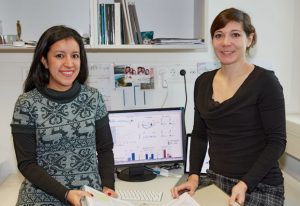
EMBL scientists unveil how 3D chromatin structure affects RNA splicing
SCIENCE & TECHNOLOGY2017
sciencescience-technology
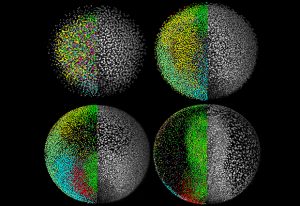
EMBL physicist-turned-biologist alumni win 2017 Kendrew and Phillipson awards
PEOPLE & PERSPECTIVES2017
alumnipeople-perspectives
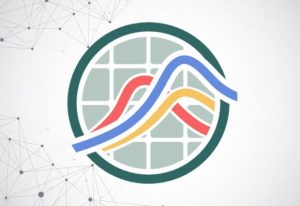
New BioModels infrastructure supports significantly more model formats and offers improved search
SCIENCE & TECHNOLOGY2017
sciencescience-technology
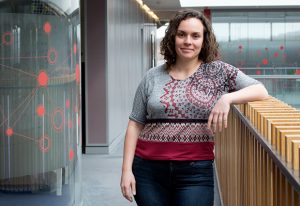
A new group at EMBL-EBI aims to decipher cell signalling networks
PEOPLE & PERSPECTIVES2017
people-perspectivesscience
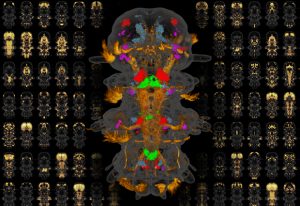
EMBL researchers complete a molecular atlas showing gene expression in all cells in an entire animal
SCIENCE & TECHNOLOGY2017
sciencescience-technology
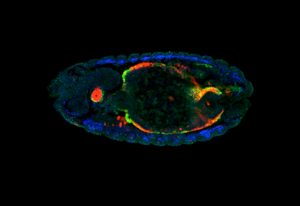
ERC grantee Eileen Furlong shares her vision for the next ten years
SCIENCE & TECHNOLOGY2017
sciencescience-technology
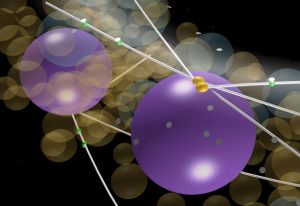
EMBL researchers develop a computer model to explore the movement of nuclei in a multinuclear cell
SCIENCE & TECHNOLOGY2017
sciencescience-technology

EMBL alumnus Angus Lamond is driving forward new ways to explore the proteome
PEOPLE & PERSPECTIVES2016
alumnipeople-perspectives
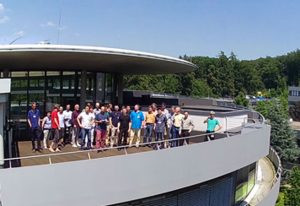
27 former Bork lab members joined Peer for a full-day get-together this summer
LAB MATTERS2016
alumnilab-matters
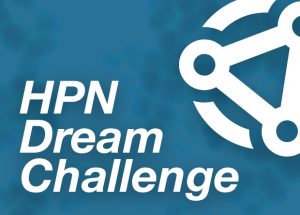
“It’s a bit like drawing a picture of an intricate object just by looking at its shadow on the wall."
SCIENCE & TECHNOLOGY2016
sciencescience-technology

Crowd sourcing initiative to predict effects of toxic compounds: results of 2013 DREAM Challenge.
SCIENCE & TECHNOLOGY2015
sciencescience-technology

Jan Korbel and colleagues publish commentary on risks and rewards of genome cloud computing.
SCIENCE & TECHNOLOGY2015
sciencescience-technology

Academic community clouds take cancer research towards a brighter future.
LAB MATTERSSCIENCE & TECHNOLOGY2015
lab-mattersscience-technology
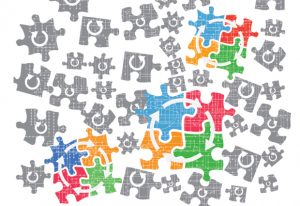
Cooperate or compete? Microbes show us that getting along is the better choice for communities.
SCIENCE & TECHNOLOGY2015
sciencescience-technology
What makes a human different from a chimp? Researchers from the European Molecular Biology Laboratory’s European Bioinformatics Institute (EMBL-EBI) have come one important step closer to answering such evolutionary questions correctly. In the current issue of Science they uncover…
SCIENCE & TECHNOLOGY2008
sciencescience-technology
The Commission of the European Union has awarded EUR 9 million over five years for a new Network of Excellence that will make computational systems biology accessible to bench scientists throughout Europe and beyond. ENFIN, which stands for ‘Experimental Network for Functional…
LAB MATTERSSCIENCE & TECHNOLOGY2005
lab-mattersscience-technology
The International Society for Computational Biology has named two scientists from the European Bioinformatics Institute as the winners of its awards for 2005. Janet Thornton wins the Senior Scientist Accomplishment Award while the Overton Prize goes to Ewan Birney. Thomas Lengauer, the ISCB’s…
EMBL ANNOUNCEMENTS2005
embl-announcements
No results found